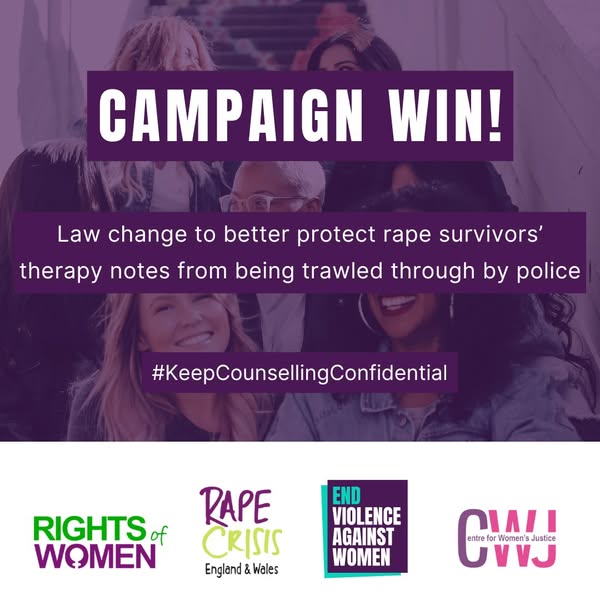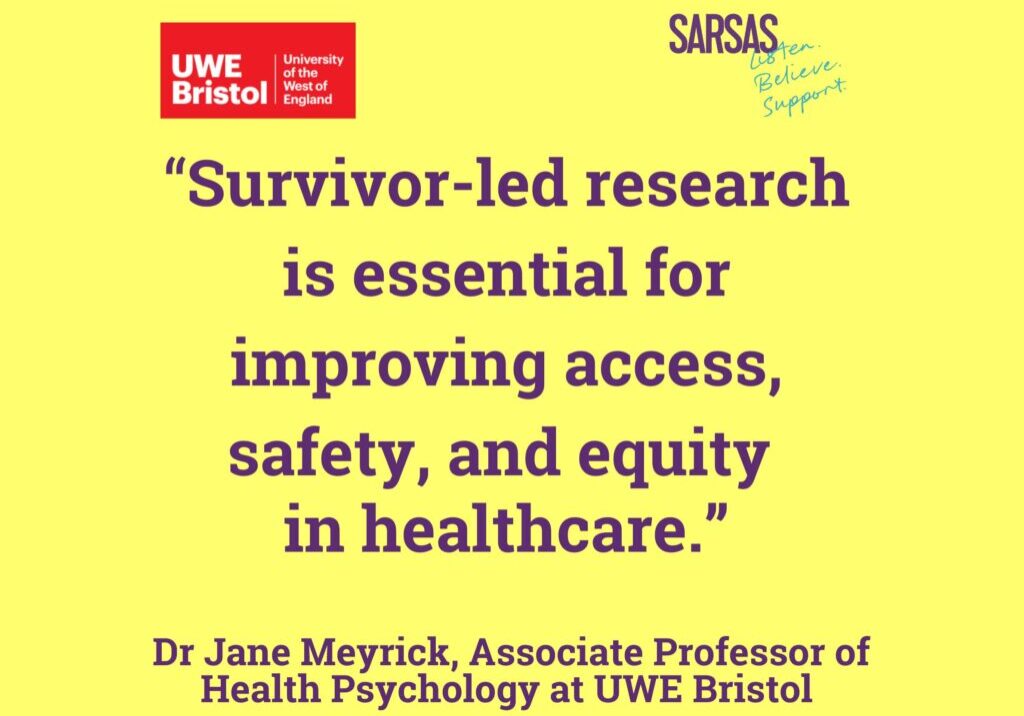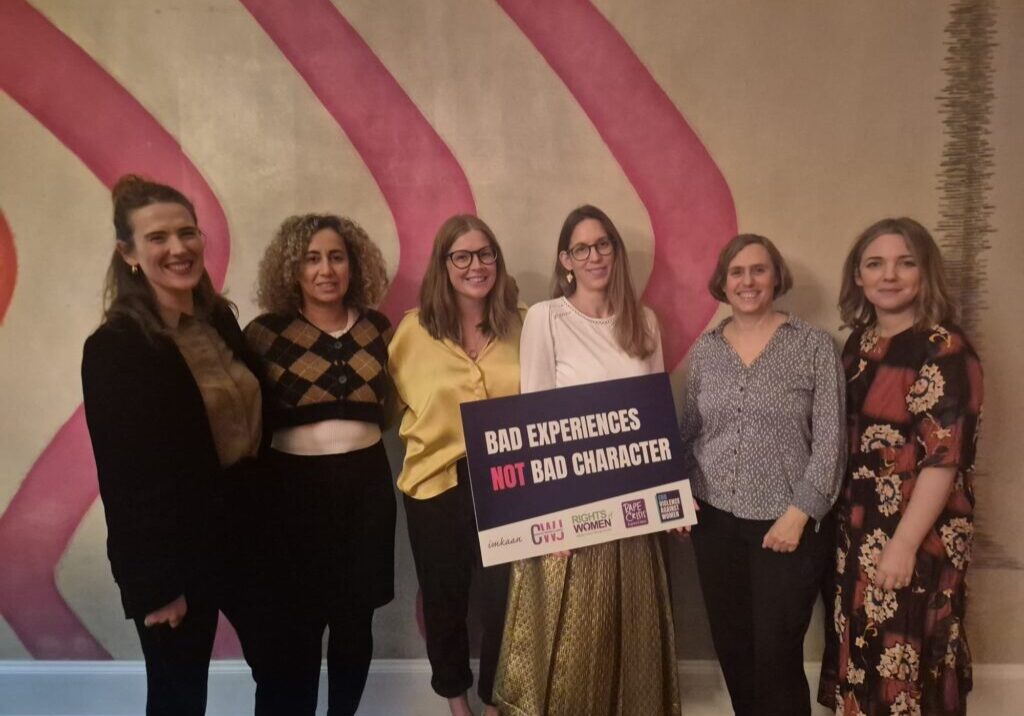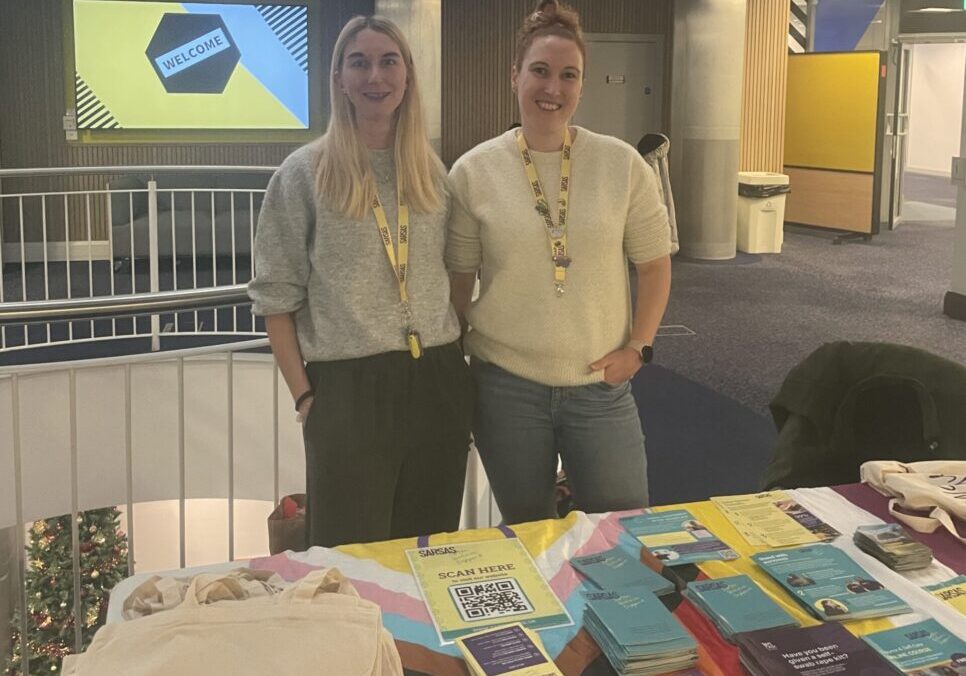
Keeping Counselling Confidential: campaign win
As one of 36 member centres of Rape Crisis England & Wales (RCEW), we’re celebrating a major step forward in protecting survivors’ privacy. Thanks to RCEW and partner organisations, new legislation will safeguard counselling notes – a key outcome of the powerful Keep Counselling Confidential campaign.
In this blog, SARSAS Communications Volunteer, Toby, shares more about this new and important change.
What happened before the campaign?
Survivors of sexual violence who reported a crime to the Criminal Justice System in the UK were routinely faced with an impossible choice, whether to pursue legal proceedings against their perpetrator or to continue safe, effective therapeutic support.
Prior to April 2024, police and law enforcement organisations in the UK were able to request the notes and records of the therapists providing counselling to a survivor bringing a claim to the courts. The police would often use this information in the legal proceeding brought before the court. Survivors have reported feeling forced to comply with the request to hand over counselling records to avoid being seen as uncooperative and to show they have nothing to hide. In many cases, survivors have been told their cases could not progress unless they ‘consented’ to disclosing the notes and therapy records.
According to a National Counselling and Psychotherapy Society (NCPS) study, 23% of therapists have had their notes requested by the police, 86% of these said the notes requested related to sexual violence cases. NCPS represent over 16,000 therapists in the UK.
94.5% of therapists surveyed feel there are ethical concerns about the police requesting counselling notes.
Real impact on survivors
A survivor who experienced their therapy notes being disclosed in court remembers the situation: ‘A blow. A violation. An assault. Very painful and lasting. Embarrassed. Ashamed. Intimidated. Unsettled. Humiliated.’ 1
Lucy, Counsellor at Nottinghamshire Sexual Violence Support Services said: ‘It seems to go against the foundation of therapy – that it’s an open and non-judgemental space – when your notes from therapy could be taken literally to judge you.’. 2
The power of collaboration
A campaign launched by Rape Crisis (RCEW), Centre for Women’s Justice and End Violence Against Women (EVAW), endorsed by the BACP, National Counselling Society, British Psychological Society and UK Council for Psychotherapy, sought change and legal protections from the request of counselling notes and records in court proceedings.
The alliance outlined several reasons for change:
- The practice of disclosing confidential notes lacks a fundamental understanding of counselling and therapy.
- The practice undermines the counselling and therapeutic profession, counteracting the safe, confidential space provided by therapy and counselling sessions that is so crucial for survivors.
- The practice often relied on coerced consent – an oxymoron – as survivors were pressured and sometimes forced to consent to the disclosure of notes for their cases to move forward.
- Police resources would be far better spent investigating reported incidents and supporting survivors than pursuing confidential records of people trying to process trauma.
The campaign was supported by a wide-ranging group of organisations. Awareness of the issue and the campaign was spread at public events and on social media, with support from the University of Oxford’s Centre for Socio-Legal Studies.3
Campaigners also lobbied for legislative action to key members of parliament, garnering support from Baroness Gabrielle Bertin, a member of the House of Lords.
The three key solutions
- A system that does not unfairly put survivors in a situation where they either have to consent to share counselling and therapy records or suffer a detriment to their case.
- A system with a higher threshold to protect privacy whilst only allowing through those rare cases where there really would be a threat to fair trial rights.
- A system where every disclosure request has to be approved by a judge to ensure the law is actually implemented, creating clear caselaw and consistency.
Campaign success!
As a result of the campaign and the brilliant work of everyone who led, supported and shared the campaign’s message, an amendment to the Victims and Prisoners Bill was introduced into UK law. This amendment will raise the legal threshold required before survivors’ counselling notes can be requested by the police. On 23rd April 2024 the government accepted a change to chapter 3A, 44a (4) of the Bill, which has now become UK law as an Act of Parliament.4
Police requests for counselling notes will only be permitted where an investigating officer ‘has reason to believe that the information sought is likely to have substantial probative value’. Requests for notes are now no longer permitted by default.
The campaign was a very well deserved winner of the campaign of the year award at the 2025 Sheila McKechnie Foundation Awards.

Looking forward to the future
The new law will come into effect in 2025/26, the organisations involved in the Keep Counselling Confidential campaign are now consulting with Government to ensure that the guidance on the legal change is as strong as possible.
‘This amendment should ensure that survivors can confidently seek counselling without fear that their therapy notes may end up being used in court. It also enables the vital trust-based relationship between therapist and survivor to be built and maintained.‘ – Dr Roman Raczka, President elect of British Psychological Society 5
‘This is fantastic news for those seeking therapy following sexual assault. It will re-establish real trust and confidence in the counselling profession ensuring what is discussed during therapy remains confidential.‘ – Children, Young People and Families lead, Jo Holmes 6
Final thought from SARSAS
This campaign win is personal to me. Before joining SARSAS, I spent many years working as a counsellor. Since then, I’ve been part of the SARSAS team – first as Head of Services and now as CEO. Across all these roles, I’ve seen first-hand why it’s vital for survivors’ journeys that therapeutic spaces remain private, safe, and confidential.
Only in that environment can survivors feel secure enough to share experiences that, for some, they may have carried for many years. No one should have to bear the weight of knowing their counselling notes could be requested by the police at any moment.
I, along with everyone at SARSAS, welcome this change in the law. Quotes like these (below) show why confidential spaces and services are so important. We celebrate the Keep Counselling Confidential campaign for protecting therapy and ensuring counselling remains safe and private.
– Lorri Weaving, SARSAS CEO

Blog written by Toby (SARSAS Communications Volunteer). Toby graduated from the University of York’s Law School in 2020, studying public and criminal law and now works for Bristol City Council.
- KEEP COUNSELLING CONFIDENTIAL ↩︎
- KEEP COUNSELLING CONFIDENTIAL ↩︎
- Keep Counselling Confidential | Social Sciences Division ↩︎
- Victims and Prisoners Act 2024 ↩︎
- BPS welcomes additional protections to protect rape survivors’ counselling notes from use in court | BPS ↩︎
- Policy success in protection of rape survivors’ therapy notes ↩︎





